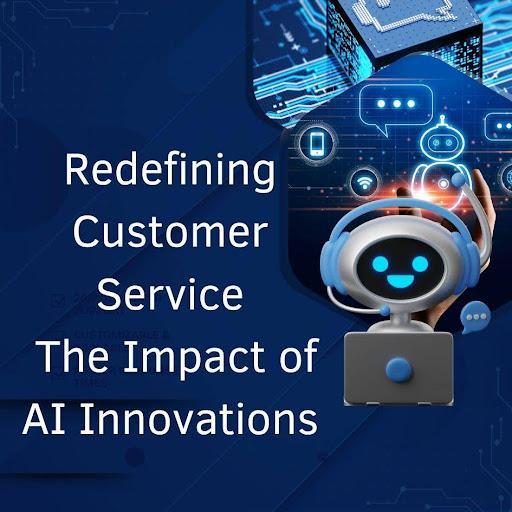
In this digital era, artificial intelligence (AI) is revolutionizing the way industries approach customer service. Through cutting-edge advancements, AI is enhancing efficiency, personalization, and user satisfaction, fundamentally transforming customer interactions. With extensive experience in technological innovation, Ankur Aggarwal provides a comprehensive analysis of these groundbreaking changes, shedding light on the potential of AI to reshape customer service operations.
A New Era of Customer Service
Artificial intelligence (AI) has become the backbone of modern customer service. Over the past decade, integrating AI systems has driven significant advancements, particularly in natural language processing (NLP) and machine learning algorithms. These technologies have allowed AI-powered systems to achieve an 89% accuracy rate in understanding user intent and a 93% success rate in automated query resolutions. Such advancements represent a fundamental shift in addressing customer needs.
Efficiency gains from AI have been extraordinary. AI systems now handle up to 85% of routine inquiries without human intervention, reducing average resolution times by 70%. This empowers service teams to focus on complex issues requiring human judgment, significantly enhancing service quality.
Personalization at Its Peak
One of AI’s most significant contributions is its ability to deliver advanced personalization. By analyzing over 200 behavioral indicators, AI-powered systems create dynamic customer profiles, achieving a 72% accuracy rate in predicting preferences. This capability enhances user experience by tailoring interactions to individual needs, fostering loyalty and satisfaction. For instance, AI chatbots can provide personalized product recommendations or customized solutions based on real-time insights. Moreover, these systems ensure consistent, adaptive, and seamless personalized experiences across multiple communication channels, revolutionizing how businesses engage with their customers and driving long-term success.
Overcoming Technical Barriers
AI’s integration has faced challenges, such as scalability and data security. However, modern systems are designed with robust architectures capable of handling millions of interactions daily. Distributed computing frameworks support seamless scalability, processing up to 1.5 million daily interactions with 99.95% uptime.
Data security is equally prioritized. AI systems employ advanced encryption protocols compliant with global regulations like GDPR and CCPA. These multi-layered frameworks ensure sensitive customer data remains protected while maintaining system performance.
Continuous Learning for Better Performance
Modern AI systems excel at continuous learning. Advanced algorithms process feedback from over 850,000 interactions daily, adapting to new patterns within 48 hours. This ensures relevance and effectiveness, even as customer expectations evolve.
Continuous learning drives sustained improvements. Organizations using these systems report a 64% increase in first-contact resolution rates and a 35% reduction in operational costs. These gains highlight the critical role of adaptive AI technologies in maintaining competitiveness.
Monitoring and Optimization
Comprehensive performance monitoring frameworks are crucial for maximizing AI’s benefits. These systems track response times, accuracy rates, and satisfaction metrics, ensuring efficiency and reliability. Current implementations achieve response times below 200 milliseconds for text interactions, with accuracy rates exceeding 93%.
Sentiment analysis tools elevate customer experience by identifying dissatisfaction signals with 89.7% accuracy. This enables proactive interventions, preventing escalations and boosting satisfaction scores. Businesses leveraging these tools report consistent quarterly improvements in customer experience.
Future Possibilities in AI-Powered Service
AI’s role in customer service is rapidly advancing, with innovations in NLP, personalization, and scalability enhancing quality and reducing costs. By 2025, AI is projected to achieve 95.3% multilingual accuracy and handle 1.8 million daily interactions, boosting engagement by 41% and cutting churn by 36%, driving efficiency and growth.
In conclusion, Ankur Aggarwal highlights the transformative impact of AI in customer service. By merging innovation with user-focused design, AI systems redefine efficiency and satisfaction. As businesses embrace these advancements, they unlock significant competitive edges, paving the way for a future where customer service is both innovative and deeply human.